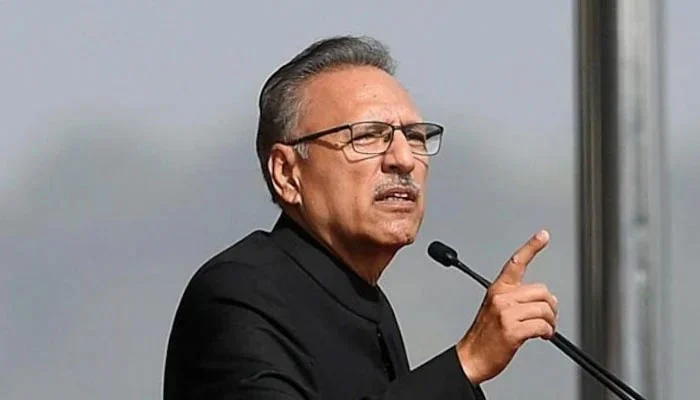Former President Arif Alvi has expressed openness to initiating dialogue on future elections, highlighting it as a step towards political resolution in the country.
Speaking in an interview during his private visit to the United States, Alvi stated, “If talks are held regarding the next elections, we would welcome them.” His remarks come amid growing calls from various political factions to engage in discussions on the democratic process.
Meanwhile, Pakistan Tehreek-e-Insaf (PTI) leader Azam Swati shared optimism about potential breakthroughs in discussions with state institutions. Swati revealed that upon Alvi’s return to Pakistan, progress in the negotiation process is expected.
During a conversation with a private TV channel, Swati mentioned he had initiated contact with the establishment on Thursday with the approval of PTI founder Imran Khan. He added that he is scheduled to meet a “special personality” next Wednesday, after which the direction of the dialogue would become clearer.
Swati also noted that he had informed Imran Khan about plans for a joint negotiation initiative involving Dr. Alvi and other key individuals. “I’ve already sent a message to Dr. Alvi about the meeting. I want him and a few others to be part of the dialogue,” Swati added.
In his interview, Alvi further stated that open dialogue is also essential for resolving longstanding issues in Balochistan. He claimed that PTI secured a victory in the region during the February 8, 2024 elections, but their votes were allegedly undercounted. According to Alvi, accurate vote tabulation would have resulted in PTI forming governments in all provinces, including Balochistan.
He voiced concern over rising frustration among youth in Balochistan, emphasizing that their grievances are being ignored. Alvi also condemned the excessive use of force against peaceful demonstrations nationwide, warning that such measures only increase public resentment.
Additionally, Alvi criticized the current state of media freedom in Pakistan, stating that print, electronic, and online platforms face severe restrictions. He remarked that access to the social media platform X is only possible through virtual private networks (VPNs).










